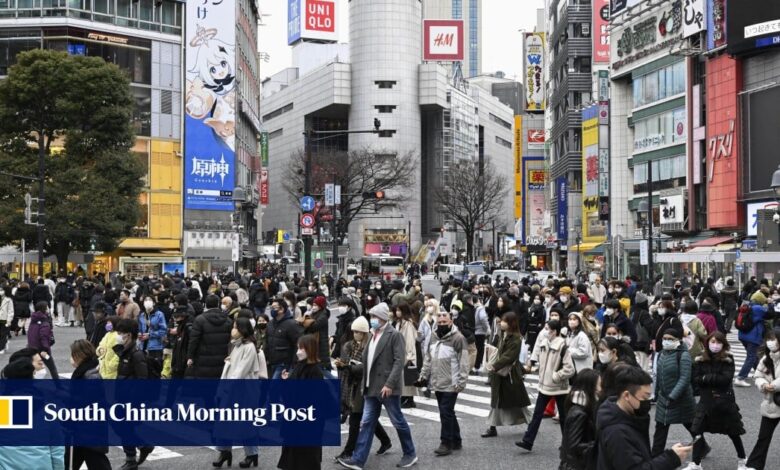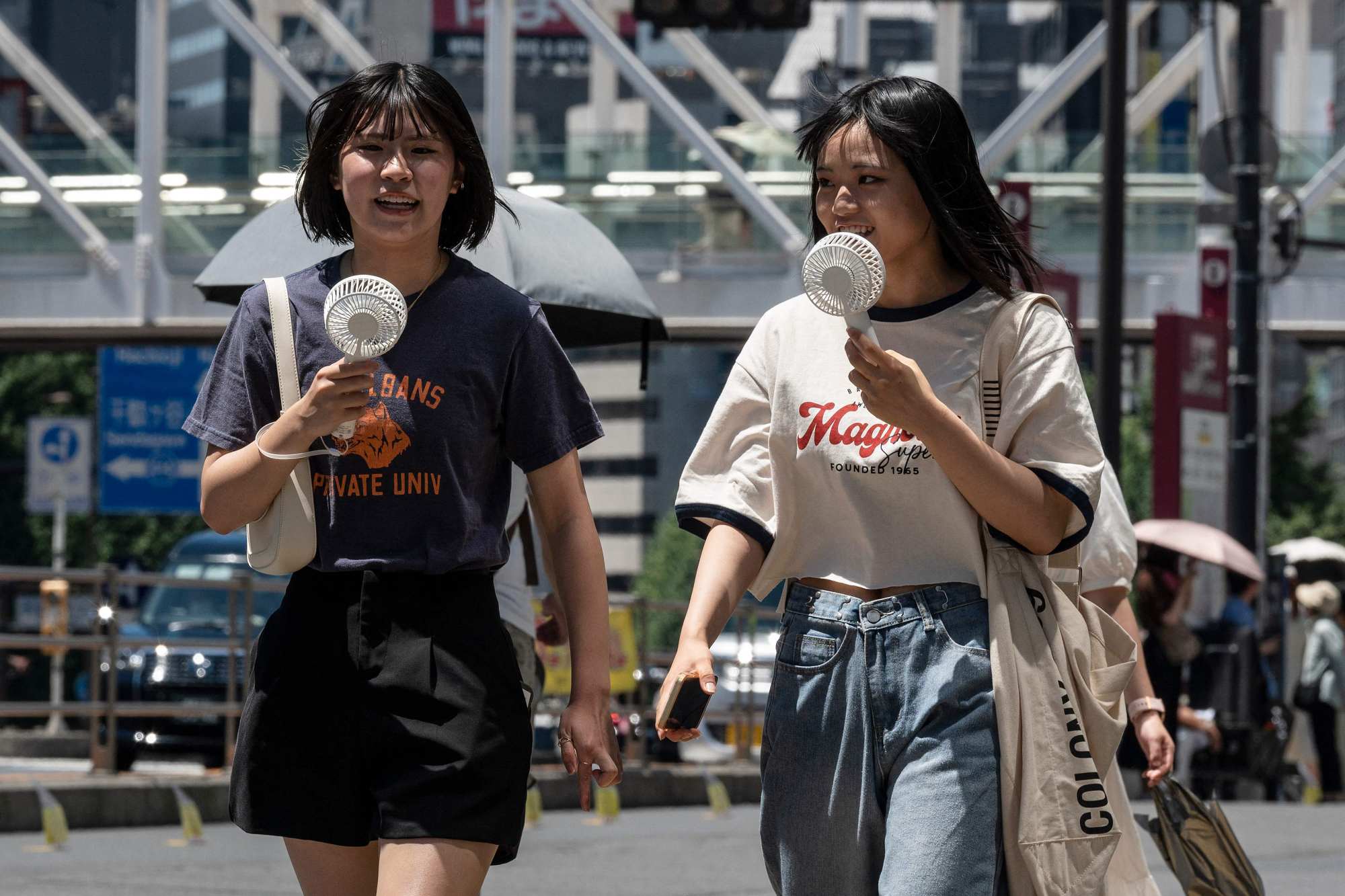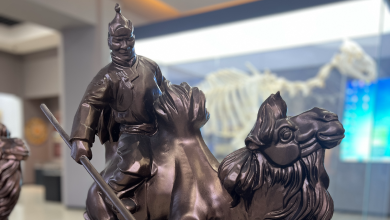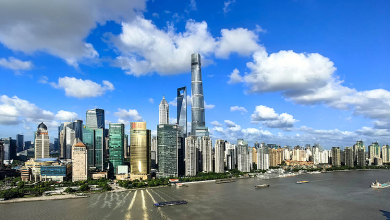Japanese employees ‘uncomfortable’ with taking leave as hardworking ethic remains strong

[ad_1]
Less than 19 per cent of Japanese employees use up all their annual paid leave, according to a new study, despite the government’s efforts to encourage them to take their full holiday allowance.
Vacation uptake hit a low of 16 per cent for workers aged between 43 and 52, the group who joined the workforce at a time that is referred to as the “employment ice age” immediately after Japan’s economic bubble burst in 1990.
‘Closed little societies’? Japanese schools criticised for hair discrimination
‘Closed little societies’? Japanese schools criticised for hair discrimination
In comparison, some 17 per cent of workers across all age groups took no annual paid leave from their companies, while 57 per cent of workers said they took around half of their entitlement.
Typically, full-time employees of Japanese firms start out with 10 days of paid leave a year and that increases by a day for each year that they work to a maximum of 20 days. Most workers are entitled to 16 public holidays a year.
The survey revealed that 43.7 per cent admitted to feeling “uncomfortable” when they submitted a request for time off.
Ken Kato, the owner of a small business in Tokyo, said many of Japan’s work customs may appear unusual to outsiders, but they are rooted in tradition.
“Less than two centuries ago, virtually everyone in Japan was a peasant who made a living by farming the land,” he said. “At that time, everyone helped out their neighbours in the village when it came to planting the rice seedlings in the paddies and gathering the crop when it was ready.
“People had to work together and if someone from the community did not help out, then they were letting everyone down and were considered lazy and selfish,” he told This Week in Asia.
That attitude, he said, continues to this day in most companies and organisations. Many people are reluctant to take their full holiday allowance because they feel their colleagues would have to do more work to cover for them while they were away enjoying a break, he said.
Digital nomads embrace ‘freedom’ of work and travel lifestyle in Japan
Digital nomads embrace ‘freedom’ of work and travel lifestyle in Japan
Equally, not taking a holiday is seen as showing commitment to the greater good, in this case, the company, “which has become the modern-day version of the community,” said Kato.
At 73, Makoto Hosomura has been putting off retirement because he enjoys his job of selling high-end imported wines and has rarely felt the need to take time off.
“I have so much to do all the time that if I take a holiday for a couple of days, it would be a huge task to catch up again,” he said. “If I take time off, I cannot ask my colleagues to do my job as well.
“Also, I have to keep my customers happy. It has taken me years to build up a good working relationship with these customers and that could be damaged if I have a holiday,” he added.
“Even if I did take time off, I would not be able to relax because I would be thinking about work. It would be more stressful than actually working.”
With ‘steep’ hike to Japan rail pass, can it be full speed ahead for tourism?
With ‘steep’ hike to Japan rail pass, can it be full speed ahead for tourism?
The Japanese government recognised in 2018 that there were problems in the nation’s entrenched and old-fashioned work attitudes, including workers not taking holidays and the habit of accumulating often unpaid overtime.
The consequence of this devotion to the workplace has manifested in the Japanese phenomenon of death by overwork called karoshi.
The karoshi culture was again in the spotlight after the government in June recognised the suicide in May 2022 of a doctor in Kobe as being work-related. The 26-year-old doctor, Shingo Takashima, worked 207 hours of overtime in the month before his death and had not taken a day off for three months, national broadcaster NHK reported.

There is a glimmer of hope that Japan’s work attitudes could evolve with the younger generation who aspire to have a better work-life balance. One study shows Generation Z employees are taking more leave than most of the older age groups and are less reluctant to ask for time off.
Among them is 21-year-old Emi Izawa, who is working part-time in a coffee shop in Yokohama before resuming her university studies. She said during her trip to Europe earlier this year, she observed and felt envious of the workers there who were able to lead a fulfilling social life.
“I want to travel, to continue with my dance club, to be able to see my friends so I do not want a job where I have to give every hour that I am awake to my company,” she said.
“That might be hard in Japan now, but it’s what I want and I hope things are changing.”
[ad_2]
Source link






